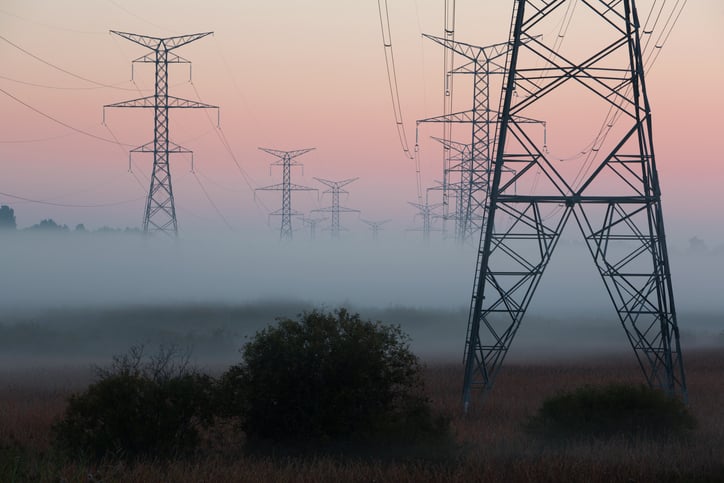With the finalized framework for RIIO-ED2 released yesterday, the industry has praised Ofgem’s commitment to decarbonisation whilst pointing to the possibility of “going further”.
The RIIO-ED2 price controls, which Ofgem described as “tough but fair”, are set to come into effect in 2023 and are to last five years.
A spokesperson for the Energy Networks Association (ENA) praised the current framework for allowing network companies to invest to “significantly improve the service they provide for the public” and helping them turn Britain into a “superpower of renewable energy”.
“As we look to meet our net zero climate targets, it is vital that the next framework continues to support the significant private investment we need to deliver a smart, flexible, low carbon electricity network for the public at the best value.
“Following [yesterday’s] announcement, we will continue to work with Ofgem as they make the crucial decisions for delivering the next electricity distribution price control,” the ENA continued.
Ofgem’s prioritisation of net zero within the framework was praised by the Renewable Energy Association’s (REA) head of policy Frank Gordon. Along with other key priorities, such as changing allowable returns and bringing the default contract period to five years, it was welcomed and described as a “sound decision”, but one that could “conceivably go further given the problems with the networks in recent years”.
“The REA cannot understate the importance of this process. Whilst many networks are presently becoming more involved in managing grid constraints, for example by tendering for energy storage services, distribution networks have traditionally been major obstacles for the deployment of renewable energy and clean technologies,” Gordon continued.
He added that recent REA analysis shows there has been a doubling of exported power to the distribution networks since 2012, with net zero to require further expansion.
“Networks need to be both encouraged through this price control framework to proactively prepare for this, and our industry needs to be sure that there is a transparent and robust penalty and review system for network operators who cannot or will not keep up with the pace of technological change.”
Similarly, The Solar Trade Association (STA) pointed to the importance placed on decarbonisation, with chief executive Chris Hewett saying there is “clearly appetite” within Ofgem to fast-track decarbonsation. However, Hewett added that it “continues to be constrained by an outdated mandate”.
“We implore the government to address this urgently by revising the regulator’s remit to incorporate net zero. In the meantime, this welcome news indicates the direction of travel that all players in the energy sector must move in,” Hewett said.
The STA is not alone in suggesting there should be a greater role for net zero within the regulator’s remit. A report from the National Infrastructure Commission (NIC) recommended that regulators, including Ofgem, should have new duties to promote the achievement of net zero.
The report was released the same week Ofgem chief executive designate Jonathan Brearley, who is to take over from Dermot Nolan in February, said decarbonisation would be an “absolute priority” for the energy regulator under his stewardship.
Ofgem has, however, come under fire in recent months over its controversial reforms to residual charges under the Targeted Charging Review, announcing it would push ahead with these reforms in November and publishing its final decision yesterday.
SP Energy Networks (SPEN) also recently hit out at the regulator, accusing it of stalling the electric vehicle roll out after it was denied funding.
However, Citizens Advice’s head of energy networks Stew Horne has praised the regulator for its “continued focus on saving consumers money and its tougher stance on the costs of borrowing and investment”.
“The extension of the RIIO-2 enhanced engagement process to the Electricity Distribution sector will bring stakeholder and customer views into the companies’ thinking and make sure they are taken on board.
“Business plans should better reflect the wants and needs of consumers and provide value for money them,” Horne added.
Whilst the framework for RIIO-ED2 has now been finalised, the methodology is yet to be decided upon. A consultation is set to be published in the summer in 2020.






